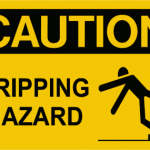Teachers need to be held accountable for student learning. Teaching is a job and our job is for students to learn. Employees who work at McDonald’s are held accountable for putting a Big Mac together correctly. Workers at Target are held accountable to stock shelves and run a cash register. Doctors are held accountable for patients who take a turn for the worse. Congressmen are held accountable for passing fair laws. (Okay, that one is a bit of a stretch.) The point is though that all jobs carry a level of accountability and teaching should not be any different. Teachers all want the same level of respect that comes with other professions. However, that also comes with a certain level of responsibility. We need to accept that accountability. What we need to struggle with is the amount of accountability and not accept a burden that we are not solely responsible for.
I teach third grade. My students have all had at least two other teachers if not more. My student’s success is based on the foundations they laid. I am only building on it. My students will be going on to future grades and hopefully college. Their future teachers expect me to continue that foundation. Every teacher who has come before and every teacher who will come later has a claim on that student so there should be a sense of shared accountability. The Big Mac at McDonald’s is assembled by one employee so it makes sense that he should be held accountable for a good product. In contrast, a student has been in the classroom of many teachers so it makes no sense to point a finger at a singled out teacher. A study done by J. Hattie has shown that teachers only have a 30% influence on student achievement. The biggest influence on student achievement is ‘what each student brings to the table’ with a whooping 50%. This is their background knowledge, their previous learning experiences, their home lives.
Josh Waldron was an award-winning teacher in Virginia who left the classroom. In a piece in which he explains all of his reasoning for leaving the classroom, he states “But while teachers are continually under pressure to be held accountable, there seems to be very little accountability for parents, the community, or district offices.” If we are going to truly change each child’s life, then every stakeholder in that child’s life has to be held accountable for their success. Teachers are not the only influence in a child’s life. The most I see my students in a day is 5 hours after lunch and specials. Each one of my students only sees me for less than a fourth of their whole day. They have so many other influences in their life. I may be one of the strongest after their families but why am I expected to carry the entire burden if my student does not reach the levels that others have set for them? It cannot all fall on an individual teacher. Thus, their families have to share some of the accountability.
Teachers and families are not only ones though. Every one of my students will enter the workforce in some manner at some point in their life. These are people who will be taking care of us in less than 25 years. It is possible that one of my students will be the doctor at my death bed. I want that doctor to have had a great education. Doesn’t that benefit the whole community? Doesn’t it benefit corporations to have qualified workers? Don’t they want their employees to come to work with strong problem solving skills? How much accountability should they carry?
These things should be considered when we are having meetings about students and their achievement. If we are going to hold anyone accountable, then all people with a stake in that child’s life should be at the table. It would be a really long table but it proves the old proverb true. It takes a village to raise a child.










Comments 2
I have yet to meet a teacher who is against fair accountability. The task then becomes how to define a fair system of accountability. There is no single test that will ever be able to take all of the contributing factors of a child’s life into account. Teachers, not politicians, should be creating accountability systems.
I would absolutely buy into a system in which a few randomly selected colleagues, parents, and students – those most impacted by my work would write a short (anonymous) evaluation of my impact, as long as I had a chance to write a reply.